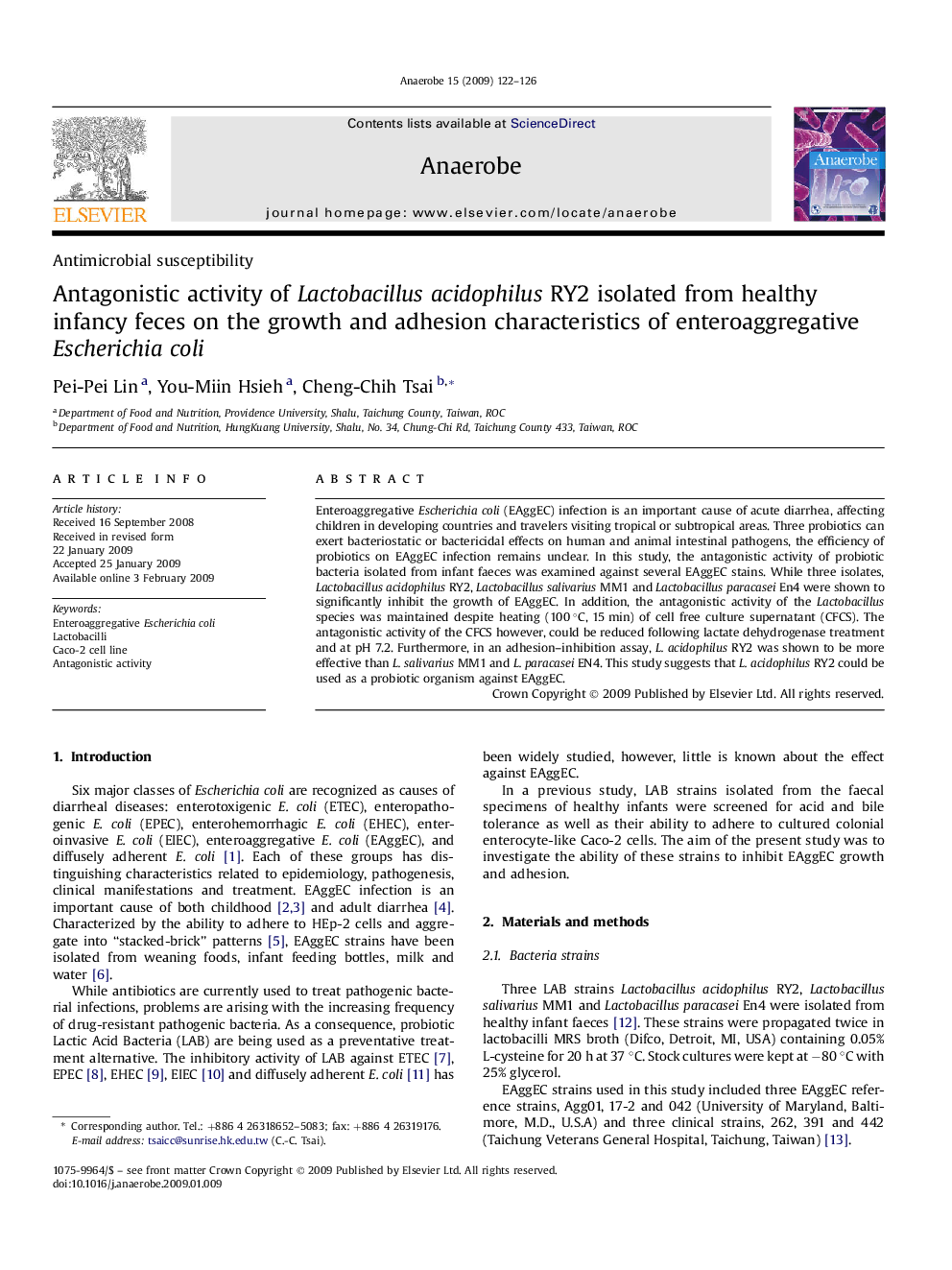| Article ID | Journal | Published Year | Pages | File Type |
|---|---|---|---|---|
| 3395541 | Anaerobe | 2009 | 5 Pages |
Enteroaggregative Escherichia coli (EAggEC) infection is an important cause of acute diarrhea, affecting children in developing countries and travelers visiting tropical or subtropical areas. Three probiotics can exert bacteriostatic or bactericidal effects on human and animal intestinal pathogens, the efficiency of probiotics on EAggEC infection remains unclear. In this study, the antagonistic activity of probiotic bacteria isolated from infant faeces was examined against several EAggEC stains. While three isolates, Lactobacillus acidophilus RY2, Lactobacillus salivarius MM1 and Lactobacillus paracasei En4 were shown to significantly inhibit the growth of EAggEC. In addition, the antagonistic activity of the Lactobacillus species was maintained despite heating (100 °C, 15 min) of cell free culture supernatant (CFCS). The antagonistic activity of the CFCS however, could be reduced following lactate dehydrogenase treatment and at pH 7.2. Furthermore, in an adhesion–inhibition assay, L. acidophilus RY2 was shown to be more effective than L. salivarius MM1 and L. paracasei EN4. This study suggests that L. acidophilus RY2 could be used as a probiotic organism against EAggEC.
